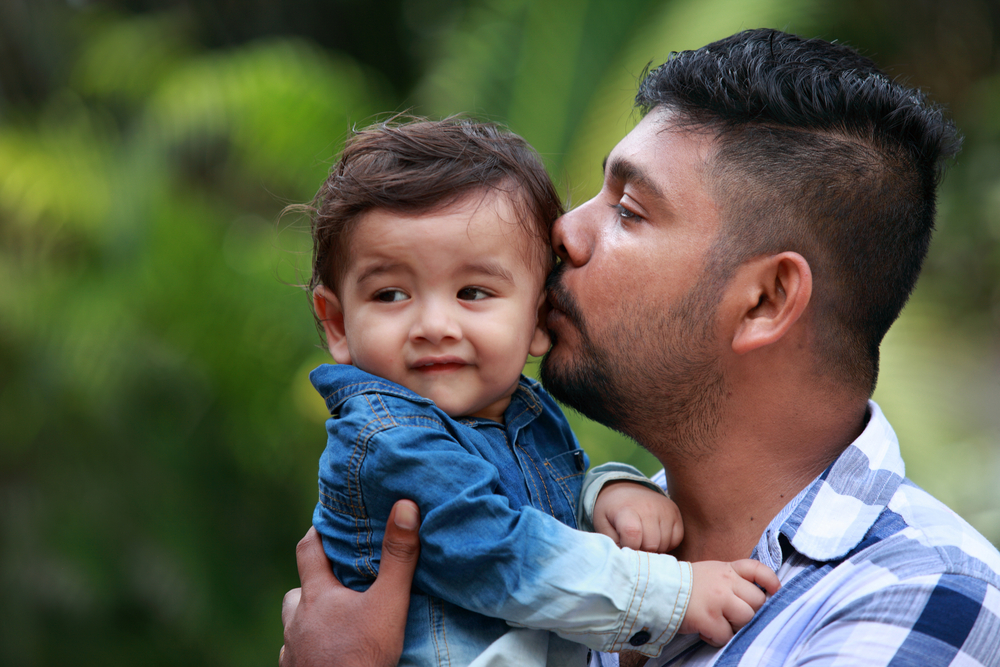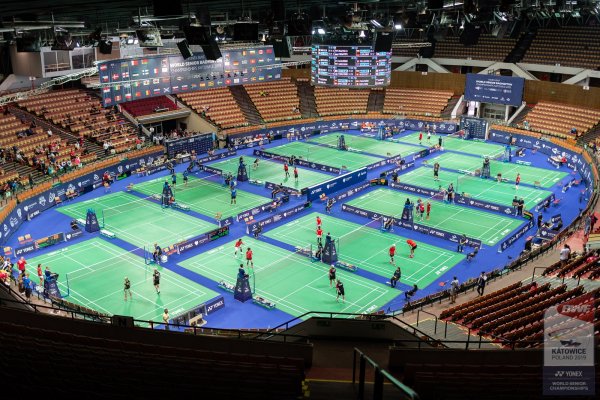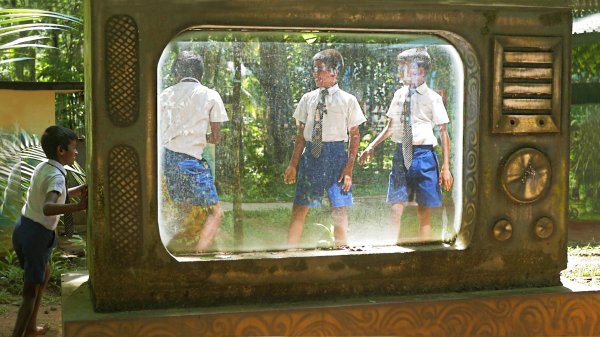
The role of a father has evolved over the past centuries and varies across cultures.
Historically, fatherhood has always been multifaceted yet a little restrictive. A father played the role of protector, provider, disciplinarian and moral guide, but was less involved in direct nurturance.
In the 1970s, as R. L. Griswol noted in his 1993 book ‘Fatherhood in America: A History’, the shift from traditional fatherhood to the more nurturant ‘new fatherhood’ began. But most studies on the subject disregarded the evolution of fatherhood in non-western cultures, such as our own.
Fatherhood In Sri Lanka
In Sri Lanka, the father is traditionally viewed as the breadwinner—the financial backbone of the nuclear family, but this view is changing. Whether directly or indirectly, fathers are often kept out of the nurturing activities, which are crucial for parent-child bonding at a young age.
Within the traditional Sri Lankan family, it is common for the mother to actively participate in nurturing these soft skills and socialising the child, especially in the early years, but this presents a problem. Men are often barred from participating in these ‘softer’ bonding activities.
This type of thinking could only do more harm than good. The father’s absence at such a crucial stage may create a gap between the parent and child that will only grow as time goes on. It could also lead to children growing up to be reticent.
Societal pressure often keeps men from participating as they are told that it is not a man’s job to babysit their child, change diapers, or feed their babies. Despite this, Sri Lankan men themselves are stepping up to fulfill these roles, altering the dynamics within the traditional family unit for the better.

Fathers are getting more involved in nurturing their children, actively involving themselves in activities which promote parent-child bonding, and showing them love more openly. This is crucial as research has shown a father’s active role in nurturing his child is of paramount importance.
Meanwhile, it is important to note that single-parent fathers have strived to fulfill both traditional fatherhood and nurturant roles throughout the years, and they are essential catalysts of this movement towards new-age fatherhood.
Benefits Of Fathers’ Active Participation
In their early years, children start accumulating knowledge of their surroundings, learning languages and how to interact with other people while also developing their motor skills. The most essential elements required to ensure healthy development at that stage are nutrition, stimulation, and overt love and protection.
Yet there is so much going on in those years that it is easy to miss out on some of the essential elements for healthy early childhood development.
As young children often exhibit the tendency to imitate the behaviours of their parents (characteristic of observational learning), there is a risk that negative behaviours may also be picked up. The only way to truly counteract this is to expose them to as many positive behaviours as possible.

Fathers play a heavy hand in improving their child’s social and emotional development.
The less interpersonal interaction a child has with their parents, the more likely that they’ll have stunted emotional development and communication skills growing up.
As the AAP states in its report Fathers’ Roles in the Care and Development of Their Children, “At three years of age, father-child communication was a significant and unique predictor of advanced language development in the child”, further cementing the fact that direct positive interactions between father and child can do the latter a world of good—but it can also be fulfilling to fathers themselves.
Ross D. Parke states in his 1996 book ‘Fatherhood’: “One of the first things a father learns from his children is that his needs can match theirs. They look to him for instruction; he can enjoy giving instruction. The children look to him as a model and being a model adds an extra dimension to his decisions. His ambitions and achievements look different to him if he can learn to look at them through their eyes as well as his own.”
A child’s intellectual prowess can also be positively affected as “Children with involved, caring fathers have better educational outcomes.” Studies suggest that actively involved and nurturing fathers can help improve their child’s cognitive abilities and linguistic skills.
How Can Fathers Be More Involved?
This may seem like a daunting task to many new fathers; after all, they helped bring a new life into this world, and an impressionable, unsullied mind relies on them for guidance and comfort. But there are ways in which a father could establish a bond with their child and help in nurturing them.

For example, with newborn babies, it is mostly about simple interactions so they can learn to mirror their parents’ actions. A newborn is still learning to move in a coordinated manner, so they look to those around them to learn to coordinate.
Skin contact is important for newborns as their other senses are still tuning into their surroundings. The warmth newborns get from cuddling with their parents brings them a sense of comfort and is a step towards establishing a bond.
In the first three months after birth, babies will develop better vision, the range of which will improve greatly after. Smiling and laughing at them, playing peek-a-boo, and other interactive plays will earn anxious parents a few new smiles.
This is also the period when parents start showing their children objects, lots of pictures and exposing them to various colours and textures, so they can learn about the world.
Sixth month onwards, the experimentation with foods begins (all but bee’s honey till year one). By turning meal times into interactive sessions and helping them learn about flavours and different food types, babies will exhibit inquisitive tendencies and be more open to exploring foods.
They also start recognising their names and become very openly curious, which is an opportunity for parents to help them explore, teach them what familiar objects are called,. and put together simple puzzles with them. Constantly conversing with the child can greatly help improve their linguistic capabilities, whereas interactive games can build their cognitive skills.

Despite the conservative view that these activities are reserved for the mother, it is of extreme importance that a father participates in these as well. For a child to know that their father loves and looks out for them is crucial for their well-being. After all, very little compares to the unconditional love of parents, and fathers are certainly important figures in our lives—and not just as our disciplinarians or moral guides, but as caring, involved and loving individuals.
Parenting is the most important job in the world, but it can be difficult. To help parents provide the best possible start for their children, UNICEF Sri Lanka has launched betterparenting.lk—a Sinhala, Tamil, and English website that compiles comprehensive expert information in four areas: child care, child development, food and nutrition, and health.








